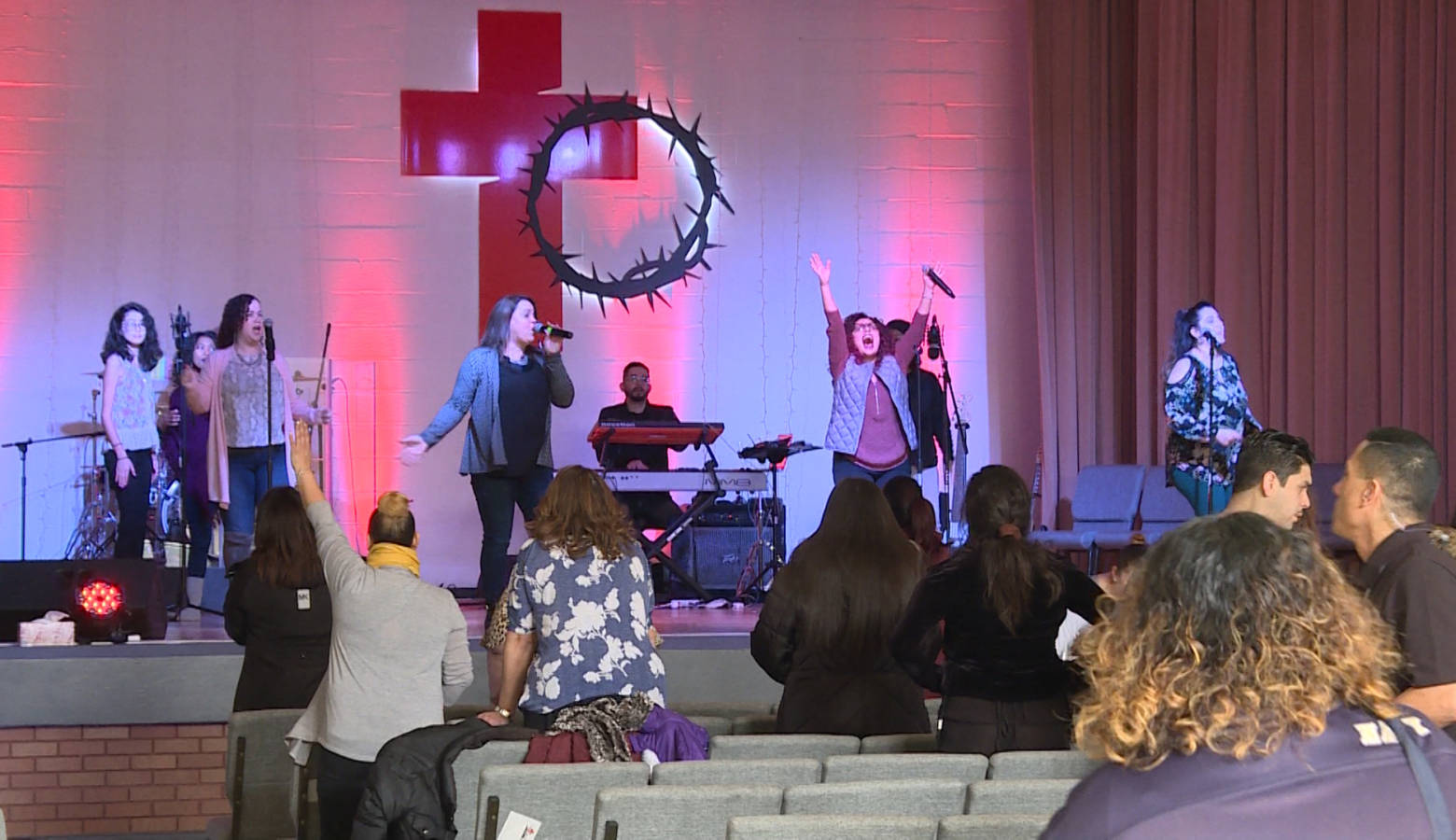Church Moves Into School Closed Due To East Chicago Lead, Arsenic Contamination

East Chicago residents are still nervous about lead and arsenic contamination. Two years after government agencies started a large-scale cleanup that’s not yet finished, residents question the use of an elementary school building in the Superfund site.
The Environmental Protection Agency says the building is safe, but not everyone trusts the EPA.
It was supposed to be the first day of school for hundreds of students at Carrie Gosch Elementary in East Chicago. But on that day in August 2016, the doors never opened. The district decided to close the school due to high levels of lead in the soil in the neighborhood and at a corner of the property.
More than 400 kids were relocated to another school across town. Superintendent Paige McNulty says it was heartbreaking to close Carrie Gosch.
“The residents were concerned, and I would be too as a mom, about my kids walking across the soil and then coming into the building and it being on their feet, on their shoes,” says she says.
Two years later, the EPA says the school is safe, though the test results haven’t been published since 2017 for lead dust and 2015 for soil testing.
But Pastor Don Ramirez saw the building as a chance to grow. His church, The Cross Church, had ballooned to more than 200 members.
“It was just an opportunity that presented itself and there was more space and we were running out of room at our current location and we took the opportunity,” he says.
The EPA says only a small portion of the site has high levels of contamination — and it plans to clean that up in the spring. As for the building itself, the EPA told Pastor Ramirez it’s safe.
“I made sure of all of those things before we moved into this location. I wasn’t going to put people at risk,” he says.
But many residents in East Chicago don’t trust the EPA and other agencies involved in the Superfund site. There’s evidence the EPA knew about the lead contamination as far back as the 1980s, but agencies told residents not to worry. That is, until a state report showed several children had high lead levels in their blood.
So when the EPA says that Cross Church’s members will be safe — some residents have doubts. Residents like Clamae Bullock. She’s a teacher and a co-organizer for the group Calumet Lives Matter.
“There should not be children there in that building in the way it’s currently being used,” she says.
Bullock says, if the building is safe, why wasn’t it opened up to let the community decide what’s to be done with it? She says Calumet Lives Matter would have liked to have seen a community center in that space — to help unify a community that’s been fragmented because of the lead crisis.
Many residents would like to see recent EPA test results for lead and arsenic at Carrie Gosch. But the school district decides who can see them and didn’t respond to our requests for the data.
“It is unclear when the last time testing has been done at that property,” says Debbie Chizewer.
Chizewer is an attorney with Northwestern University Law School who represents residents affected by the USS Lead site. She says when the EPA demolished the nearby contaminated public housing complex, lead and arsenic could have spread to the Carrie Gosch property.
Chizewer says as the EPA continues to dig up contaminated soil in the area, it could kick up lead dust.
“There’s nothing that prevents contaminated materials from blowing from that site over to the Gosch property,” she says.
At a public meeting in November, the EPA’s Doug Ballotti said the agency does have protections to make sure the contamination doesn’t spread and it will test along the way to make sure they’re working.
“We’ve got protections that we have planned, very similar to what happened when they actually did the demolition of the housing project,” he says.
That included wetting down dust with hoses, using fans to keep dust from moving out of the site, and washing off trucks and other equipment.
The company that monitored the contamination at the demolition site of the West Calumet Housing Complex, Amereco Engineering, says there were no detectable levels of lead, arsenic or asbestos in the air during the demolition.
The Cross Church Pastor Don Ramirez says he believes the EPA and is ready to move on.
“What can we do to make a difference and keep moving forward and making East Chicago a great place — cause that’s what it is, it’s a great community,” he says.
The EPA declined to be interviewed about The Cross Church.
Indiana Environmental reporting is supported by the Environmental Resilience Institute, an Indiana University Grand Challenge project developing Indiana-specific projections and informed responses to problems of environmental change.

